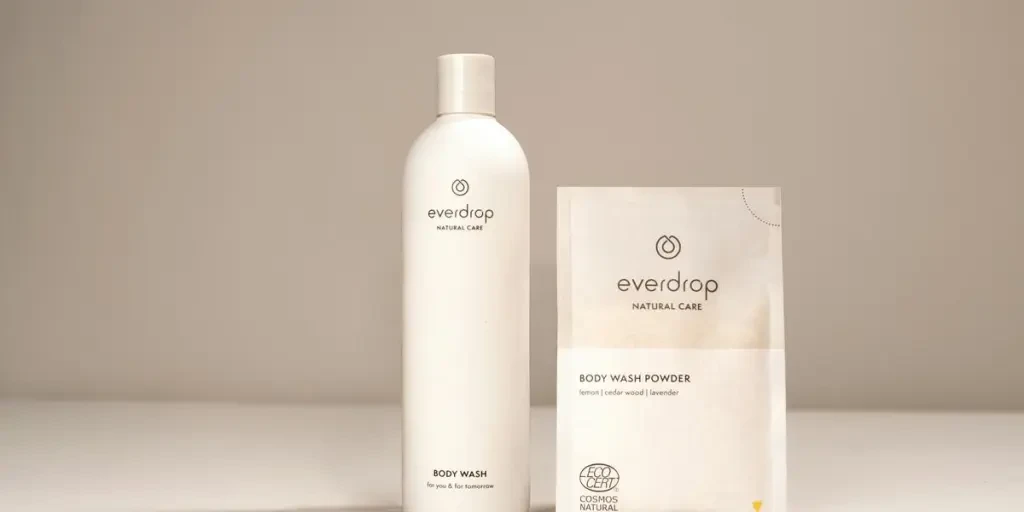As we step into 2025, the beauty and personal care industry continues to evolve, with body shampoo emerging as a standout product. This guide delves into the factors driving the rise of body shampoo, its market potential, and the influence of social media trends. Business buyers, including retailers and wholesalers, will find valuable insights to navigate this dynamic market.
Table of Contents:
– Understanding the Rise of Body Shampoo in 2025
– Exploring Popular Types of Body Shampoo
– Addressing Common Consumer Pain Points
– New and Innovative Products in the Market
– Key Factors to Consider When Sourcing Body Shampoo
– Wrapping Up: The Future of Body Shampoo in the Beauty Industry
Understanding the Rise of Body Shampoo in 2025

What Makes Body Shampoo a Trending Product?
Body shampoo has become a staple in personal care routines, offering a convenient and effective solution for maintaining hygiene and skin health. Unlike traditional bar soaps, body shampoos are formulated with advanced ingredients that cater to various skin types and concerns. The shift towards liquid body cleansers is driven by their ease of use, superior moisturizing properties, and the ability to incorporate beneficial ingredients such as essential oils, vitamins, and natural extracts.
Market Potential and Demand Growth
The global shampoo market, which includes body shampoos, is projected to grow significantly. According to a professional report, the market is expected to expand from $33 billion in 2024 to $48 billion by 2031. This growth is fueled by increasing consumer awareness about personal hygiene, urbanization, and rising environmental pollution. The Asia-Pacific region, particularly East Asia and Japan, is anticipated to dominate the market, reflecting its attractiveness and potential for expansion.
The demand for body shampoos is also driven by the rising prevalence of skin-related issues and the growing preference for products that offer specific benefits, such as anti-bacterial, hydrating, and soothing properties. The economy segment of the shampoo market is forecasted to exhibit growth, indicating a shift towards affordable yet effective personal care solutions.
Social Media Influence and Broader Trend Alignment
Social media platforms play a crucial role in shaping consumer preferences and driving trends in the beauty and personal care industry. Hashtags like #BodyShampoo, #SkincareRoutine, and #SelfCareSunday have gained immense popularity, highlighting the increasing focus on self-care and wellness. Influencers and beauty enthusiasts frequently share their skincare routines, featuring body shampoos that promise luxurious and spa-like experiences at home.
The alignment of body shampoo with broader trends such as clean beauty, sustainability, and natural ingredients further boosts its appeal. Consumers are increasingly seeking products that are free from harmful chemicals, cruelty-free, and packaged in eco-friendly materials. This shift towards conscious consumption is reflected in the growing demand for body shampoos that prioritize both efficacy and ethical considerations.
In conclusion, the rise of body shampoo in 2025 is a testament to the evolving consumer preferences and the industry’s ability to innovate and meet these demands. Business buyers can capitalize on this trend by offering a diverse range of body shampoos that cater to various skin types and concerns, while also aligning with the broader trends of sustainability and clean beauty.
Exploring Popular Types of Body Shampoo

Natural and Organic Body Shampoos: Pros and Cons
Natural and organic body shampoos have gained significant traction in recent years, driven by the increasing consumer demand for clean and sustainable beauty products. These shampoos are formulated with natural ingredients such as essential oils, plant extracts, and botanicals, which are often sourced from organic farming practices. The primary advantage of natural and organic body shampoos is their gentle formulation, which is less likely to cause skin irritation or allergic reactions. Brands like Dr. Bronner’s and Burt’s Bees have successfully capitalized on this trend by offering a range of body shampoos that are free from synthetic chemicals, parabens, and sulfates.
However, there are some drawbacks to consider. Natural and organic body shampoos may have a shorter shelf life due to the absence of synthetic preservatives. Additionally, these products can be more expensive than their conventional counterparts, which may impact their accessibility for some consumers. Business buyers should weigh the benefits of offering natural and organic options against the potential challenges, such as higher costs and the need for proper storage to maintain product efficacy.
Specialized Formulas for Different Skin Types
Body shampoos are not a one-size-fits-all solution, and specialized formulas for different skin types are essential to meet the diverse needs of consumers. For instance, individuals with dry skin may benefit from body shampoos enriched with hydrating ingredients like glycerin, hyaluronic acid, and shea butter. Brands like Aveeno and Eucerin offer body shampoos specifically designed to provide intense moisture and relieve dryness.
On the other hand, those with oily or acne-prone skin may require body shampoos with ingredients such as salicylic acid, tea tree oil, and charcoal, which help to control excess oil and prevent breakouts. Neutrogena and CeraVe are well-known for their targeted body shampoos that address these specific skin concerns. Business buyers should consider stocking a variety of specialized formulas to cater to different skin types, ensuring that their product offerings meet the diverse needs of their customer base.
Consumer Feedback on Popular Brands
Consumer feedback plays a crucial role in shaping the success of body shampoo brands. Positive reviews and testimonials can significantly boost a brand’s reputation and drive sales. For example, Dove’s body shampoos are highly praised for their moisturizing properties and pleasant fragrances, making them a popular choice among consumers. Similarly, NIVEA’s body shampoos receive positive feedback for their gentle formulations and affordability.
Conversely, negative feedback can harm a brand’s image and deter potential buyers. Common complaints about body shampoos include issues such as strong fragrances, which may be off-putting to some consumers, and formulations that leave a residue on the skin. Business buyers should pay close attention to consumer feedback and consider it when selecting body shampoo brands to stock. By prioritizing products with positive reviews and addressing common consumer pain points, buyers can enhance customer satisfaction and loyalty.
Addressing Common Consumer Pain Points

Solutions for Sensitive Skin Issues
Sensitive skin is a common concern among consumers, and body shampoos formulated to address this issue are in high demand. Products designed for sensitive skin typically contain mild, hypoallergenic ingredients that minimize the risk of irritation. Brands like Cetaphil and Vanicream offer body shampoos that are free from fragrances, dyes, and harsh chemicals, making them suitable for individuals with sensitive skin.
Business buyers should consider stocking body shampoos specifically labeled for sensitive skin to cater to this segment of the market. Additionally, providing clear information about the ingredients and benefits of these products can help consumers make informed choices and build trust in the brand.
Tackling Dryness and Hydration Needs
Dry skin can be uncomfortable and unsightly, leading consumers to seek body shampoos that provide effective hydration. Ingredients such as aloe vera, coconut oil, and oatmeal are known for their moisturizing properties and are commonly found in body shampoos designed to tackle dryness. Brands like Olay and Aveeno have developed body shampoos that not only cleanse but also provide long-lasting hydration to the skin.
For business buyers, it is essential to offer a range of hydrating body shampoos to meet the needs of consumers with dry skin. Highlighting the key ingredients and their benefits on product packaging and marketing materials can help attract customers looking for solutions to their dryness concerns.
Innovations in Fragrance-Free Options
Fragrance-free body shampoos are becoming increasingly popular among consumers who are sensitive to strong scents or prefer a more neutral product. These shampoos are formulated without added fragrances, making them suitable for individuals with allergies or sensitivities. Brands like Free & Clear and Sebamed offer fragrance-free body shampoos that are gentle on the skin and provide effective cleansing without irritation.
Business buyers should consider including fragrance-free options in their product lineup to cater to this growing market segment. Providing a variety of fragrance-free body shampoos can help attract consumers who prioritize gentle and hypoallergenic products.
New and Innovative Products in the Market

Cutting-Edge Ingredients and Their Benefits
The body shampoo market is continuously evolving, with new and innovative ingredients being introduced to enhance product performance. Ingredients such as probiotics, which help maintain the skin’s natural microbiome, and adaptogens, which support the skin’s resilience to stress, are gaining popularity. Brands like Mother Dirt and Youth To The People are at the forefront of incorporating these cutting-edge ingredients into their body shampoos.
Business buyers should stay informed about the latest ingredient trends and consider stocking products that feature these innovative components. By offering body shampoos with advanced ingredients, buyers can differentiate their product offerings and appeal to consumers seeking the latest in skincare technology.
Eco-Friendly and Sustainable Packaging
Sustainability is a significant concern for many consumers, and eco-friendly packaging is becoming a key factor in purchasing decisions. Brands like Ethique and Plaine Products are leading the way with their commitment to sustainable packaging, offering body shampoos in biodegradable, recyclable, or refillable containers. These initiatives not only reduce environmental impact but also resonate with eco-conscious consumers.
Business buyers should prioritize stocking body shampoos with eco-friendly packaging to align with consumer values and support sustainability efforts. Highlighting the environmental benefits of these products can also enhance brand image and attract environmentally conscious customers.
Emerging Brands to Watch
The body shampoo market is dynamic, with new and emerging brands continually entering the scene. Brands like Native and Love Beauty and Planet have quickly gained popularity for their innovative formulations and commitment to sustainability. These brands often leverage social media and influencer partnerships to build brand awareness and connect with consumers.
Business buyers should keep an eye on emerging brands and consider incorporating them into their product offerings. By staying ahead of market trends and introducing new and exciting brands, buyers can keep their product lineup fresh and appealing to consumers.
Key Factors to Consider When Sourcing Body Shampoo

Ingredient Transparency and Safety
Ingredient transparency is crucial for building consumer trust and ensuring product safety. Consumers are increasingly scrutinizing product labels and seeking body shampoos with clear and honest ingredient lists. Brands like The Honest Company and Dr. Bronner’s are known for their commitment to ingredient transparency, providing detailed information about the sources and benefits of their ingredients.
Business buyers should prioritize sourcing body shampoos from brands that emphasize ingredient transparency and safety. Ensuring that products are free from harmful chemicals and allergens can help build consumer confidence and loyalty.
Price Points and Value for Money
Price is a significant factor in consumer purchasing decisions, and offering body shampoos at various price points can help cater to different market segments. While premium brands like Aesop and L’Occitane offer luxurious formulations at higher price points, affordable options like Dove and Suave provide quality products at a more accessible price.
Business buyers should consider stocking a range of body shampoos at different price points to accommodate various consumer budgets. Emphasizing the value for money and benefits of each product can help attract cost-conscious consumers without compromising on quality.
Supplier Reliability and Certification
Reliable suppliers are essential for maintaining consistent product quality and availability. Business buyers should work with suppliers who have a proven track record of reliability and adherence to industry standards. Certifications such as ISO, GMP, and cruelty-free labels can also provide assurance of product quality and ethical practices.
When sourcing body shampoos, buyers should prioritize suppliers with strong reputations and relevant certifications. Establishing long-term partnerships with reliable suppliers can help ensure a steady supply of high-quality products and minimize disruptions in the supply chain.
Wrapping Up: The Future of Body Shampoo in the Beauty Industry
The body shampoo market is poised for continued growth and innovation, driven by evolving consumer preferences and advancements in product formulations. As consumers become more conscious of ingredient safety, sustainability, and specialized skincare needs, business buyers must stay ahead of trends and prioritize products that align with these values. By offering a diverse range of body shampoos that cater to different skin types, preferences, and budgets, buyers can enhance their product offerings and meet the demands of a dynamic market.




